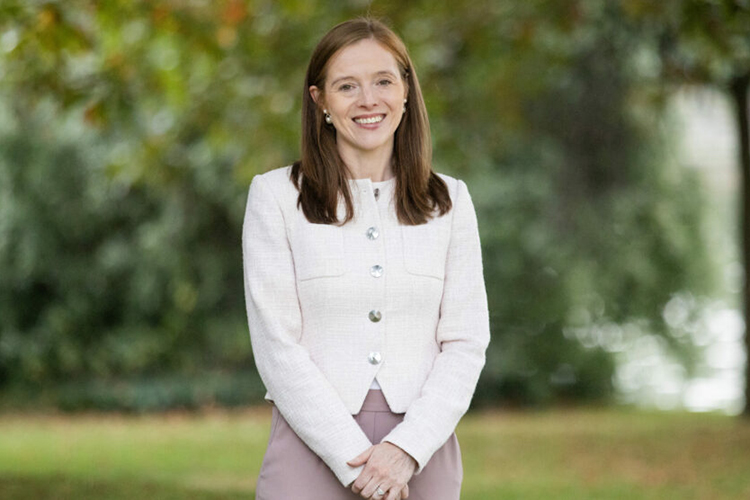Professor Grainne O’Kane appointed inaugural Pat Smullen Chair in Pancreatic Cancer
Posted 22 August, 2024

Professor Grainne O’Kane has been appointed as the inaugural Pat Smullen Chair in Pancreatic Cancer at University College Dublin.
The new position aims to act as an anchor for pancreatic research in Ireland, with the ambition of creating a global centre of excellence for the treatment and research of this form of cancer, which has one of the poorest outcomes.
The new role will receive €900,000 over the next five years from Cancer Trials Ireland’s Pat Smullen Pancreatic Cancer Fund, and will allow Professor O’Kane to divide her time between clinical work as a treating physician at St Vincent’s University Hospital, the national surgical centre for pancreatic cancer, and research work at UCD School of Medicine.
Matching funding will be provided for the role by the HSE National Cancer Control Programme (NCCP).
“A diagnosis of pancreatic cancer can be quite devastating as its one of the most difficult cancers to treat, however we are learning more and more every day,” said Professor O’Kane.
“Research has contributed to this. This cancer has also come with two big challenges beyond science and medicine: People are not as aware of pancreatic cancer, compared to other cancers and despite being one of the most lethal cancers, it does not receive the same funding or attention as other cancers.”
Speaking about the appointment, Frances Crowley, wife of the late Pat Smullen member of the Pat Smullen Pancreatic Cancer Fund, said by funding the role “the aim is to put pancreatic cancer research onto a more stable and promising footing, and I know that’s what Pat wanted to achieve when we set about the Irish Champions Weekend fundraiser in 2019”.
“Thanks to the unswerving support of the horse racing community, Pat’s friends, and many others whose lives have been affected by pancreatic cancer, we are able to make this long-term funding commitment.”
According to the Irish Cancer Society, over 600 people are diagnosed with pancreatic cancer each year in Ireland. Unfortunately, the disease is biologically complex and challenging to treat and study.
The tumour microenvironment in pancreatic cancer creates a particularly hostile barrier that shields the tumour, making it challenging for treatments to reach and effectively target cancer cells.
In addition, pancreatic cancer has one of the highest mortality rates among cancers due to its rapid progression and aggressive nature, with the disease often only being detected at an advanced stage.
“The hosting of the Pat Smullen Chair in Pancreatic Cancer at UCD School of Medicine is consistent with UCD’s strategic priority to be a research-intensive university,” said Dean and Head of UCD School of Medicine, Professor Michael Keane.
“The position is an excellent opportunity for Professor O’Kane to drive research and teaching activities in an ambitious academic environment.
“I want to take this opportunity to share UCD School of Medicine’s gratitude with Cancer Trials Ireland and the Smullen family for their philanthropic support for the establishment of this new chair. It is thanks to support like theirs that cancer research and teaching continues to advance, improving our knowledge of the disease, its diagnosis, therapeutic manipulation, and, ultimately, patient outcomes.”
Professor O’Kane added: “Frances Crowley and her family, and friends, and the horse racing community in Ireland have done a staggering amount to change this in Ireland. They put pancreatic cancer on the map, and in the past five years, raised more than €3m to research the disease and I am here today, in this role, because of that. I am honoured and humbled to receive this opportunity, and I’m very excited about the future.”
Global developments in pancreatic research are promising according to Professor Ray McDermott, Vice Clinical Lead for Cancer Trials Ireland, who said “with the Pat Smullen Chair in Pancreatic Cancer now in place, Ireland is in a strong position to attract trials using new agents that better target this mutation. Hopefully we will see patients benefitting from these trials soon.”
By: David Kearns, Digital Journalist / Media Officer, UCD University Relations
To contact the UCD News & Content Team, email: newsdesk@ucd.ie






